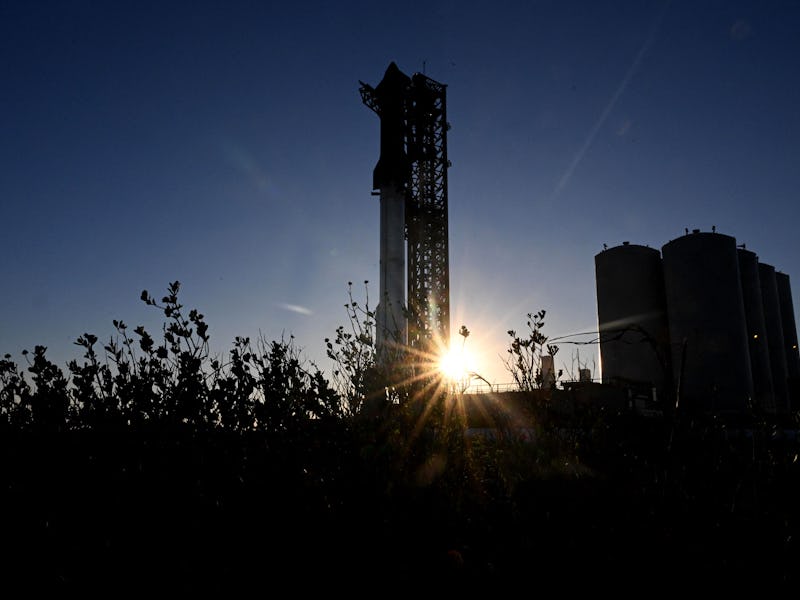SpaceX’s Starship, The Most Powerful Rocket On Earth, Could Fly Again On Saturday
It’s take two, and you won’t want to miss it.

On Saturday, SpaceX will attempt a new flight test of Starship, the most powerful rocket in the world.
Their first test, conducted on April 20 of this year, saw Starship reach an altitude of 24 miles over the Gulf of Mexico, just offshore of the company’s “Starbase” launch facility in Boca Chica, Texas. But the launch ended just four minutes after ignition, when Starship veered off course and began to tumble. The SpaceX team elected to activate the self-destruct detonators of Starship’s Autonomous Flight Safety System to blow up their unpredictable craft.
The new launch will be the second integrated test of two major components that stack up to create Starship. First up for evaluation will be Super Heavy, the powerhouse, lower component of the rocket equipped with 33 engines that can ignite up to 16.7 million pounds of thrust. By comparison, NASA’s Artemis I Space Launch System produced 8.8 million pounds of thrust last year when it fired off towards the Moon.
Debris litters the ground on April 22, 2023, after the SpaceX Starship lifted off on April 20 for a flight test from Starbase in Boca Chica, Texas.
Then there’s the top of the rocket, the Starship spacecraft. It was developed to carry larger-than-usual numbers of people (which could be up to 100 passengers) to and from space. No one will fly onboard Starship during the second test. Both the spacecraft and Super Heavy will be tested for their ability to successfully separate from each other, and to each land back to the surface.
SpaceX’s major calling card, besides being owned by Elon Musk, is that its rocket parts are reusable. This is attractive to NASA because it drives down costs and time from one flight to the next. Many of its much smaller Falcon 9 boosters have flown numerous times. In 2020, SpaceX began sending astronauts to space onboard its reusable Dragon capsules.
Saturday’s test is designed to last an hour and a half. Onlookers will be waiting to see if Starship survives past its four-minute benchmark. But what happens in the first moments will also matter. The April 20 launch created damage to the launchpad, which subsequently lofted dirt and dust onto a community six miles away from the launchpad. A window also reportedly shattered from the shock of the blast.
Saturday could be filled with many revelations about the limits of rocket engineering, and where humanity might be headed in the next century.